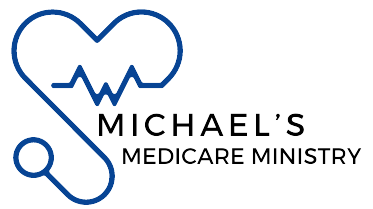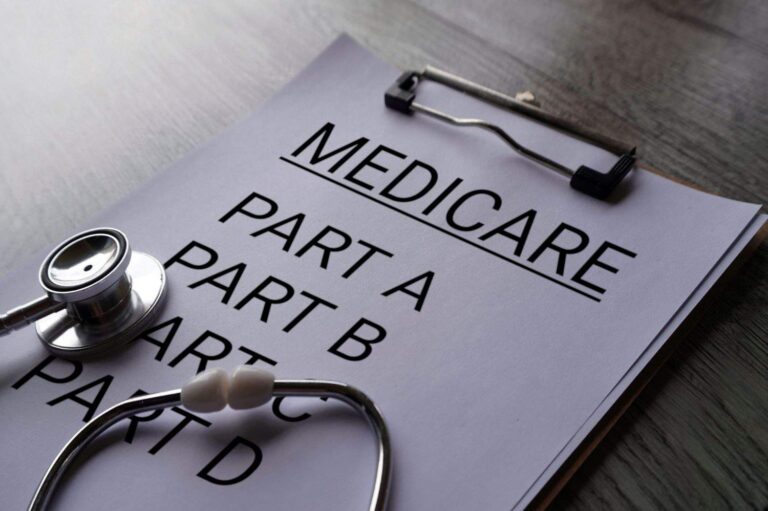Turning 65 often brings a wave of new responsibilities, and one of the most important is understanding your Medicare options. Whether you’re planning ahead or just becoming eligible, it’s crucial to understand what Medicare Part A covers and whether you qualify for it.
If you’re based in Beaverton, OR, and find the Medicare process confusing, local resources like MichaelsMedicareMinistry can help simplify things by offering expert guidance on how Medicare works and what options may suit your needs best.
📍 Address: 15125 SW Ruby Ct, Beaverton, OR 97007
📞 Phone: +1 (503) 828-2328
📧 Email: wmichaeljarman@gmail.com
What Is Medicare Part A?

Medicare Part A is often referred to as hospital insurance. It’s a core component of the federal Medicare program and typically helps cover the costs of inpatient care, among other hospital-related services. For most Americans, Part A is available premium-free, making it an essential foundation of retirement healthcare planning.
What Does Medicare Part A Cover?
Medicare Part A helps pay for a variety of medically necessary services, especially those related to inpatient hospital care. Here’s a breakdown of the primary services it covers:
Inpatient Hospital Care
If you’re admitted to a hospital, Medicare Part A helps cover:
- Semi-private rooms
- Meals
- General nursing
- Drugs and medical supplies used during your stay
- Services provided by the hospital (lab tests, imaging, etc.)
Note: Your hospital stay must be formally admitted by a doctor and last at least two consecutive midnights to qualify under Part A.
Skilled Nursing Facility (SNF) Care
After a qualifying hospital stay of at least three days, you may need additional recovery time. Part A covers:
- Skilled nursing care
- Rehabilitation services
- Meals and medications
- Medical social services
Important: Custodial care (help with bathing, dressing, etc.) is not covered unless it’s part of your rehabilitation.
Home Health Care
For those who qualify, Medicare Part A may also cover:
- Part-time or intermittent skilled nursing care
- Physical, occupational, or speech therapy
- Medical social services
Home health services must be ordered by a doctor and provided by a Medicare-certified agency.
Hospice Care
If you are diagnosed with a terminal illness with a life expectancy of six months or less, Part A covers:
- Pain management
- Palliative care
- Grief counseling
- Inpatient respite care (temporary relief for caregivers)
Who Qualifies for Medicare Part A?
Medicare Part A eligibility is generally based on age, work history, or disability status. Here are the common ways you can qualify:
Turning 65
You’re eligible for Medicare Part A at age 65 if:
- You or your spouse worked and paid Medicare taxes for at least 10 years (40 quarters)
- You’re a U.S. citizen or permanent legal resident
- If you meet these criteria, Part A is usually premium-free.
Under 65 With a Disability
You may qualify before 65 if you:
- Have received Social Security Disability Insurance (SSDI) for at least 24 months
- Have End-Stage Renal Disease (ESRD)
- Have Amyotrophic Lateral Sclerosis (ALS)
In these cases, you are automatically enrolled in Medicare Part A (and Part B).
Spousal Benefits
Even if you personally didn’t work the required 10 years, you might still be eligible for premium-free Part A based on your spouse’s work history, as long as:
- You’re 65 or older
- Your spouse is at least 62
- Your marriage lasted at least 10 years (if divorced)
What Does Medicare Part A Not Cover?
Understanding what isn’t covered is just as important. Medicare Part A does not cover:
- Doctor visits (covered by Part B)
- Prescription drugs (covered by Part D or a Medicare Advantage plan)
- Long-term custodial care
- Most dental, vision, and hearing services
- Private-duty nursing
- Personal convenience items (TVs, phones, etc.)
- For comprehensive coverage, many individuals consider Medicare Supplement (Medigap) plans or Medicare Advantage (Part C) options.
How Medicare Part A Supports Recovery at Home
Many people don’t realize that Medicare Part A isn’t just for hospital stays—it can also support recovery at home, in specific situations. This is especially helpful for older adults who prefer healing in familiar surroundings rather than extended facility stays.
Medicare Part A may help cover home health services if certain conditions are met, such as:
- You’ve had a recent qualifying hospital stay
- A doctor certifies that you’re homebound
- Skilled care (like nursing or physical therapy) is medically necessary
These services can include part-time nursing care, physical or speech therapy, and even help with medical equipment related to your condition. While not a replacement for full-time long-term care, this type of support can play a key role in your recovery process.
If you’re turning 65 and live in Beaverton, this level of coverage may bring peace of mind—especially when you know local guidance, like MichealsMedicareMinistry, is available to help you understand how home-based care works under Medicare.
When to Enroll in Medicare Part A
If you’re receiving Social Security benefits at least four months before you turn 65, you’re usually automatically enrolled in Medicare Part A. If not, you’ll need to manually enroll during your Initial Enrollment Period (IEP):
- Starts 3 months before your 65th birthday
- Includes your birth month
- Ends 3 months after your birthday
- Delaying enrollment may lead to penalties if you don’t have qualifying coverage elsewhere.
Medicare Part A lays the foundation for your health coverage after 65. Knowing what it includes—and what it doesn’t—can help you plan your healthcare expenses with confidence. If you’re in Beaverton, OR, and unsure about your eligibility or how to fill in the coverage gaps, Michael’s Medicare Ministry can serve as a reliable local resource to guide you through the process.
Need Personalized Medicare Guidance in Beaverton?
Contact us to get expert help and peace of mind—at no cost to you.
📍 Address: 15125 SW Ruby Ct, Beaverton, OR 97007
📞 Phone: +1 (503) 828-2328
📧 Email: wmichaeljarman@gmail.com
FAQs: Medicare Part A
Do I need to sign up for Medicare Part A at 65?
If you’re already receiving Social Security or Railroad Retirement benefits, enrollment is automatic. Otherwise, you’ll need to enroll during your Initial Enrollment Period.
Is Medicare Part A really free?
For most people, yes. If you or your spouse paid Medicare taxes for 10 years, Part A comes with no monthly premium. However, there are deductibles and coinsurance costs.
Can I get Part A before age 65?
Yes, if you have a qualifying disability or condition such as ALS or ESRD.
Does Medicare Part A cover doctor visits?
No, doctor visits and outpatient services are covered under Medicare Part B, not Part A.
What’s the difference between Part A and Part B?
Part A covers inpatient care (like hospital stays), while Part B covers outpatient care (like doctor visits and diagnostic tests).




